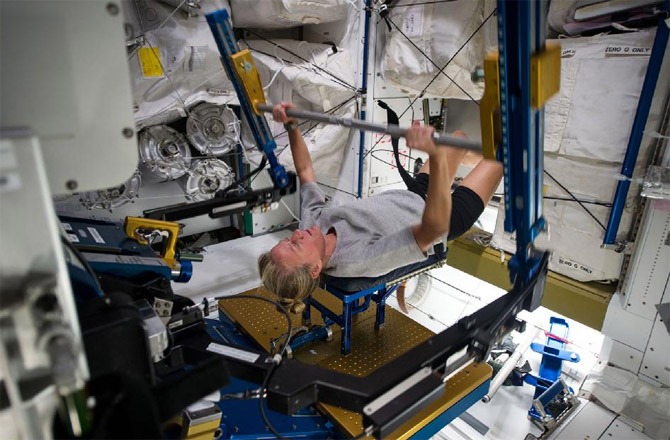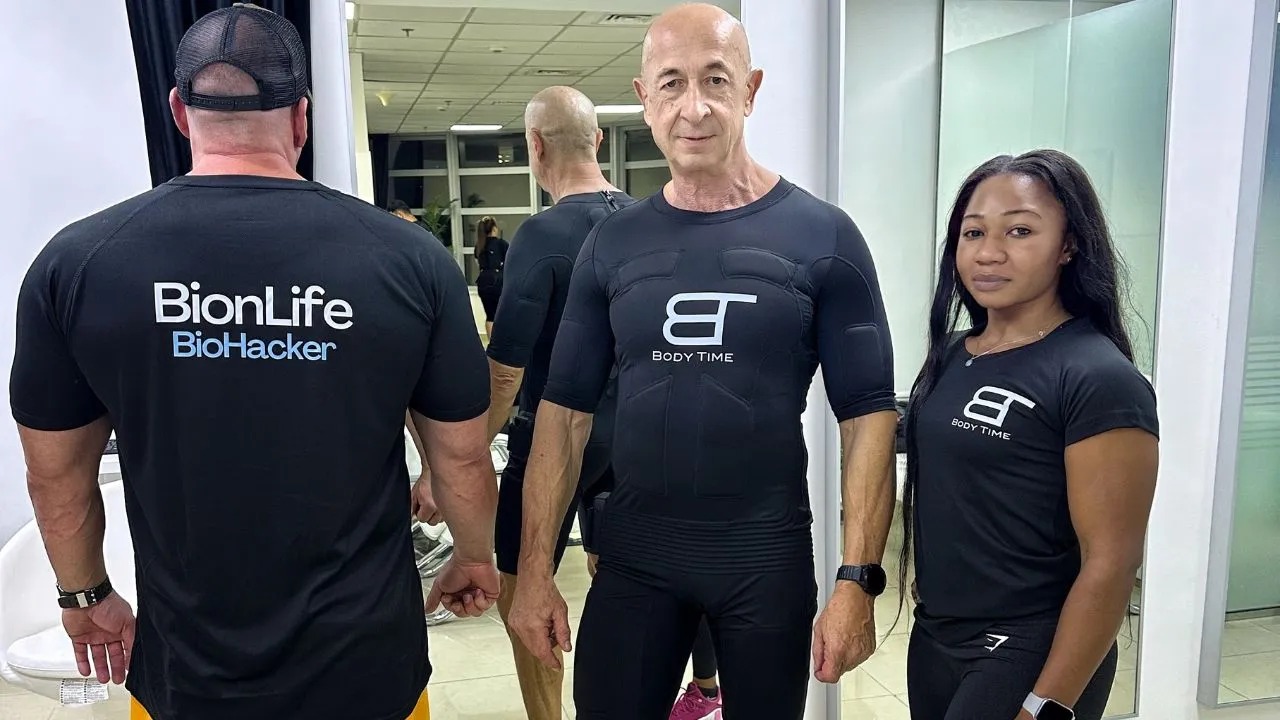
How Chefs Stay Fit in High-Pressure Kitchens.
Working in a high-pressure kitchen demands intense physical and mental endurance, yet many chefs maintain peak fitness through disciplined exercise, mindful nutrition, stress management, and recovery practices. From standing long hours and lifting heavy loads to managing constant heat and mental stress, this article explores how chefs stay strong, energized, and resilient while thriving in one of the most demanding professions.
💪 Fitness Guru
45 min read · 27, Sep 2025

How Chefs Stay Fit in High-Pressure Kitchens
Working as a professional chef is a dream for many, but behind the allure of culinary creativity lies one of the most physically and mentally demanding professions in the world. Long hours on one’s feet, constant heat, stress from high expectations, and the pressure to perform consistently can take a serious toll on a chef’s body and mind. While the general public often associates chefs with indulgence in rich foods, the reality is that many chefs follow strict regimens to maintain their health and stamina in order to survive the grind of high-pressure kitchens.
This article dives deep into the methods chefs use to stay fit, the challenges they face, and how balance between work and wellness is essential in their career.
1. The Physical Demands of a Chef’s Job
A chef’s day often begins long before service hours. From sourcing ingredients and prepping stations to running through multiple meal services, their schedule involves:
- Standing for 10–14 hours a day
- Exposure to high heat and confined spaces
- Heavy lifting of pots, pans, and boxes of produce
- Fast-paced repetitive motions like chopping, stirring, and plating
- Erratic break times and irregular meals
This environment places stress on joints, lower backs, and cardiovascular health. Without proper attention, it can lead to fatigue, weight gain, or even chronic health issues. Therefore, fitness for chefs is not just about aesthetics; it’s about survival and longevity in their career.
2. Fitness Habits Chefs Adopt
2.1 Standing and Core Strength
Since much of their time is spent on their feet, chefs often emphasize core and leg strength. Exercises such as squats, lunges, planks, and yoga postures help improve balance, posture, and stamina. A strong core reduces the risk of lower back pain and fatigue.
2.2 Short but Effective Workouts
Chefs don’t usually have time for two-hour gym sessions. Instead, many use short, high-intensity workouts or 15–20 minute bodyweight routines in the morning or before bed. These include:
- Push-ups and pull-ups
- Jump rope
- Burpees
- Resistance bands
- Tabata or HIIT circuits
2.3 Walking and Functional Fitness
Many chefs rely on walking or cycling to work, integrating fitness into their daily commute. Functional fitness, which mimics real-life movements (lifting, bending, carrying), directly benefits their physical endurance in the kitchen.
3. Nutrition Choices: Practicing What They Preach
Ironically, chefs are surrounded by food but often lack time to eat balanced meals. To stay fit, many adopt mindful nutrition strategies:
- Portion Control: Instead of large meals, they snack on smaller portions to avoid fatigue.
- Hydration: Kitchens are hot, and dehydration is common. Chefs drink plenty of water or electrolyte beverages to stay sharp.
- Balanced Ingredients: Many chefs opt for lean proteins, fresh vegetables, and whole grains—often from their own menus.
- Limiting Excess Tastings: Tasting is essential, but chefs learn to take small bites instead of consuming full portions repeatedly.
- Meal Prep: Some chefs prepare healthy snacks (nuts, fruit, yogurt) before shifts to avoid relying on fried or carb-heavy staff meals.
4. Stress Management in High-Pressure Kitchens
Fitness is not just physical; mental health is equally critical. High-pressure kitchens can trigger stress, anxiety, or even burnout. To manage this, chefs turn to:
- Mindfulness and Meditation: Short breathing exercises between shifts help maintain calm.
- Yoga or Tai Chi: Helps in mental clarity, flexibility, and posture.
- Time Outdoors: On off-days, chefs often prioritize hiking, nature walks, or other calming activities.
- Creative Outlets: Music, art, or reading provides a break from the intensity of kitchen life.
5. Sleep and Recovery
Sleep is one of the biggest challenges for chefs who work late nights. Sleep deprivation can affect metabolism, immunity, and mood. Strategies include:
- Napping: Short naps before shifts or after work provide quick recovery.
- Sleep Hygiene: Avoiding caffeine late at night, using blackout curtains, and following a winding-down routine.
- Active Recovery: Stretching, foam rolling, or even massage therapy to release muscle tension.
6. Ergonomics in the Kitchen
Professional kitchens are not designed for comfort, but chefs adapt by:
- Wearing supportive footwear with cushioned insoles to reduce foot strain.
- Using compression socks to improve blood circulation.
- Adjusting workstation heights to reduce bending.
- Taking micro-breaks to stretch shoulders, wrists, and necks.
7. Role of Discipline and Routine
The most successful chefs treat fitness like part of their craft. Just as they maintain precision in their recipes, they follow discipline in self-care. Setting aside even 15 minutes for exercise or planning meals in advance becomes part of their lifestyle.
8. Real-Life Examples of Fit Chefs
- Gordon Ramsay is known for his triathlon participation, marathon running, and strict fitness routine despite a hectic culinary empire.
- Massimo Bottura incorporates cycling and outdoor activity into his schedule.
- Amanda Freitag promotes balanced eating and has spoken about the importance of movement for kitchen professionals.
These chefs highlight that success in culinary arts and personal wellness can coexist with discipline.
9. Tips for Aspiring Chefs to Stay Fit
- Invest in quality shoes—your feet are your foundation.
- Start the day with exercise—even 10 minutes makes a difference.
- Snack smartly—carry healthy snacks to avoid impulsive junk food.
- Drink water regularly—dehydration leads to fatigue and mistakes.
- Stretch during breaks—quick stretches prevent stiffness.
- Protect your mental health—don’t underestimate stress management.
- Use days off wisely—catch up on rest and do physical activities you enjoy.
Working as a professional chef is one of the most demanding careers, requiring a unique blend of physical endurance, mental acuity, and emotional resilience, and yet, many people fail to recognize just how physically taxing the profession truly is, as chefs spend the majority of their day on their feet, navigating hot, crowded kitchens with constant time pressure while juggling multiple tasks simultaneously, from prepping ingredients to managing a team, executing complex recipes, and ensuring timely service, which places significant strain on their joints, back, and cardiovascular system, and therefore maintaining fitness is not simply a matter of vanity or aesthetic preference but a fundamental necessity for longevity in the industry, and to meet these demands, chefs have developed strategies that integrate exercise, nutrition, stress management, and recovery into their daily routines, often despite the long hours and unpredictable schedules, for instance, because much of a chef’s work involves standing, bending, lifting heavy pots and boxes, and repetitive movements such as chopping, stirring, and plating, core and leg strength are critical, and many chefs adopt exercises like squats, lunges, planks, and yoga to maintain balance, posture, and overall stamina, which helps prevent fatigue and injuries, while others incorporate short but high-intensity workouts into their mornings or evenings, with routines including push-ups, pull-ups, burpees, jump rope, and resistance band exercises, sometimes using HIIT or Tabata circuits to maximize benefits in minimal time, and since gym time may be limited due to work hours, functional fitness and active commuting, such as cycling or walking to work, become practical ways to improve endurance, strengthen muscles, and maintain cardiovascular health while performing movements that directly translate to their daily kitchen activity, yet physical fitness alone is insufficient without attention to nutrition, and while chefs are surrounded by food constantly, they often practice mindful eating by controlling portions, limiting tastings, and emphasizing fresh vegetables, lean proteins, and whole grains, while also staying hydrated with water or electrolyte drinks, as dehydration in hot kitchens can lead to fatigue and impaired focus, and meal prepping healthy snacks like nuts, fruits, or yogurt helps prevent reliance on staff meals, which are often rich in calories and less balanced, in addition to the physical and nutritional aspects, stress management is crucial, since high-pressure kitchens can cause significant mental strain, and chefs employ techniques such as mindfulness, meditation, yoga, and even breathing exercises between service periods to maintain calm and focus, spending time outdoors, hiking, or engaging in hobbies like music, reading, or art can provide emotional relief and prevent burnout, while sleep and recovery, despite the challenge of irregular schedules and late-night service, remain vital, with chefs often relying on short naps, blackout curtains, sleep hygiene practices, and active recovery through stretching, foam rolling, or massage therapy to restore energy, reduce muscle tension, and maintain overall health, and ergonomics also play a role in sustaining wellness, with chefs investing in supportive footwear, compression socks, and properly adjusted workstations to minimize strain on feet, back, shoulders, and wrists, and taking micro-breaks to stretch during shifts, these strategies combined form a disciplined approach to balancing the demands of a high-intensity profession with the needs of the body and mind, and this discipline mirrors the precision and care they apply to their culinary creations, as evidenced by world-renowned chefs like Gordon Ramsay, who participates in triathlons and runs marathons, Massimo Bottura, who incorporates cycling into his routine, and Amanda Freitag, who emphasizes balanced eating and regular movement, proving that even amidst relentless kitchen pressure, it is possible to maintain fitness and overall wellness, and aspiring chefs can learn from these practices by prioritizing supportive footwear, short daily exercise, smart snacking, hydration, micro-stretch breaks, stress management, and active off-days, ultimately recognizing that fitness is not a luxury but a professional requirement that allows them to perform at their best, reduce the risk of chronic injury or illness, sustain creativity, and extend their careers, and by integrating these habits into their lifestyles, chefs not only preserve their physical health but also improve mental resilience, energy levels, and productivity, creating a harmonious balance between the art of cooking and personal well-being, underscoring the principle that just as they carefully balance flavors, textures, and presentation on a plate, they must also balance movement, nutrition, rest, and mindfulness in their lives, demonstrating that fitness in the culinary world is a multidimensional practice that combines practical exercises, functional strength, healthy eating habits, stress relief strategies, and recovery techniques, all tailored to the unique challenges of working in high-pressure environments, and this holistic approach ensures that chefs can continue to thrive in a profession that demands both stamina and passion, making the pursuit of fitness not merely a personal goal but a professional imperative, essential for enduring the physical, mental, and emotional demands of a career in culinary arts.
Working as a chef in a high-pressure kitchen is one of the most physically and mentally demanding professions, requiring long hours of standing, constant movement, and multitasking under stress, and while many people imagine chefs indulging in rich foods all day, the reality is that to survive and thrive in such environments, maintaining fitness is not optional but essential, as the constant heat, heavy lifting of pots and boxes, repetitive chopping, stirring, and plating can place significant strain on the legs, back, shoulders, and cardiovascular system, and over time, without proper care, this can lead to chronic pain, fatigue, and even injury, which is why many chefs develop disciplined routines that integrate exercise, nutrition, stress management, and recovery into their lives despite unpredictable schedules and high workloads, starting with physical fitness, where core and leg strength are crucial for balance, posture, and endurance, and exercises like squats, lunges, planks, and yoga are commonly practiced to prevent lower-back strain and maintain stamina, while high-intensity interval training or short bodyweight workouts such as push-ups, pull-ups, burpees, and jump rope allow chefs to fit effective exercise into limited free time, and functional fitness, which mimics movements performed in the kitchen, such as lifting, bending, and carrying, is often incorporated to directly improve work performance, along with active commuting methods like walking or cycling to maintain cardiovascular health while integrating movement naturally into daily routines, and nutrition plays an equally important role in a chef’s wellness, as long hours in a kitchen with tempting indulgent food can easily lead to overeating or poor dietary habits, so many chefs practice portion control, mindful eating, and selective tasting, prioritizing vegetables, lean proteins, whole grains, and fresh ingredients while limiting fried foods and heavy snacks, and meal prepping small, nutrient-rich snacks such as nuts, fruits, or yogurt ensures they maintain energy and avoid reliance on high-calorie staff meals, while hydration is carefully monitored through water and electrolyte drinks to combat the effects of heat and physical exertion in the kitchen, and just as fitness and nutrition are vital, stress management is critical in maintaining overall health, as the high-pressure environment, long hours, and constant demand for perfection can lead to anxiety, burnout, or emotional exhaustion, so chefs often turn to mindfulness, meditation, yoga, deep-breathing exercises, or short mental breaks during shifts, and on off-days, many engage in outdoor activities like hiking, cycling, or leisurely walks, or pursue creative outlets such as music, art, or reading, all of which help relieve tension and provide emotional balance, while sleep and recovery remain major challenges, since late-night shifts and irregular schedules can disrupt circadian rhythms, making short naps, consistent sleep routines, blackout curtains, and active recovery practices such as stretching, foam rolling, or massage therapy essential to replenish energy, prevent muscle stiffness, and maintain focus during demanding service hours, and ergonomic adaptations also contribute to chef fitness, with supportive footwear, compression socks, and properly adjusted workstations reducing strain on the feet, knees, back, and shoulders, while micro-stretch breaks during service prevent repetitive strain injuries and improve circulation, and this holistic approach to fitness mirrors the discipline chefs apply in the kitchen, as they must manage multiple variables simultaneously and maintain precision under pressure, exemplified by world-renowned chefs like Gordon Ramsay, who participates in triathlons and marathon running, Massimo Bottura, who incorporates cycling and outdoor activity into his routine, and Amanda Freitag, who emphasizes balanced eating and regular movement, showing that physical and mental fitness can coexist with culinary excellence, and aspiring chefs can learn from these practices by investing in supportive footwear, incorporating short daily workouts, planning healthy snacks, staying hydrated, stretching during shifts, prioritizing mental well-being, and making active use of days off, ultimately understanding that fitness is not a luxury but a professional requirement, allowing them to perform at their best, reduce the risk of injury or chronic illness, sustain creativity, and prolong their careers, and by integrating these habits, chefs not only preserve physical health but also enhance mental resilience, energy, and productivity, demonstrating that just as they balance flavors, textures, and presentation on a plate, they must balance movement, nutrition, rest, and mindfulness in their lives, making fitness a multidimensional practice encompassing physical exercises, functional strength, healthy eating, stress relief, and recovery, all tailored to the unique challenges of high-pressure kitchen work, which ensures that they can continue to meet the demands of their profession while maintaining well-being, stamina, and passion for culinary arts, showing that behind the glamour and recognition lies a rigorous routine of self-care, discipline, and conscious effort to remain strong, alert, and creative every day, and that sustaining such a balance requires intentional planning, commitment, and awareness of the body and mind, ultimately proving that fitness for chefs is as much a part of their craft as the recipes they create, allowing them to perform optimally, endure physical and mental stress, and maintain a career that is both rewarding and sustainable over the long term.
Conclusion
Chefs work in one of the most physically demanding and stressful environments. Staying fit is not about vanity but about sustaining performance, creativity, and health over years in high-pressure kitchens. From short, intense workouts and mindful nutrition to stress management, ergonomic adaptations, and disciplined routines, chefs find ways to balance their demanding jobs with wellness.
The takeaway is simple: just as chefs craft balance in flavors, they must craft balance in life. Fitness is the ingredient that sustains them through the heat, pressure, and passion of the kitchen.
Q&A Section
Q1 :- Why do chefs need to focus on fitness more than other professionals?
Ans :- Chefs work long hours on their feet in high-stress environments. Fitness ensures they have the stamina, strength, and mental clarity to perform without burning out.
Q2 :- What kind of workouts suit a chef’s schedule?
Ans :- Short, high-intensity workouts like HIIT, bodyweight exercises, yoga, or even daily walking are best since they save time and improve overall endurance.
Q3 :- Do chefs actually eat healthy despite being surrounded by indulgent food?
Ans :- Many do. Chefs practice portion control, mindful snacking, and hydration. They also often choose lean proteins, vegetables, and whole grains from their menus.
Q4 :- How do chefs handle the stress of a high-pressure kitchen?
Ans :- Stress management techniques include mindfulness, meditation, yoga, outdoor activities, and hobbies outside cooking. These help chefs maintain balance.
Q5 :- What role does sleep play in a chef’s fitness routine?
Ans :- Sleep is vital for recovery. Despite late hours, chefs prioritize naps, good sleep hygiene, and relaxation techniques to maintain energy and focus.
Similar Articles
Find more relatable content in similar Articles

Fitness Gamification: Why Millennials Burn Calories Playing ..
“Exploring how millennials are.. Read More

Fitness for Astronauts: How Space Training Can Improve Earth..
“Exploring how the rigorous fi.. Read More

How Chefs Stay Fit in High-Pressure Kitchens...
Working in a high-pressure kit.. Read More

Fitness Biohacking: Training Beyond Human Limits...
Unlocking Peak Human Potential.. Read More
© 2024 Copyrights by rFitness. All Rights Reserved.